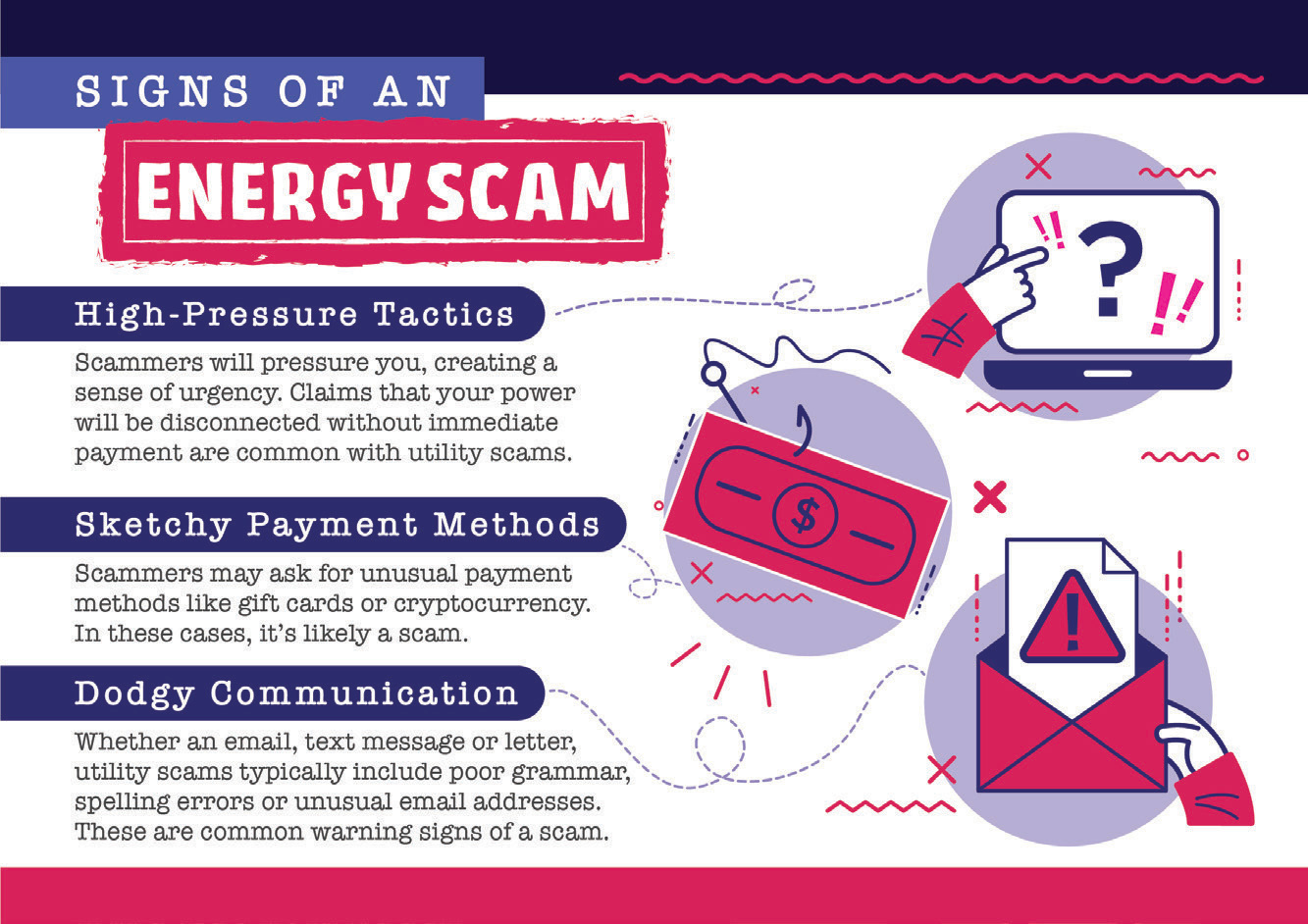Utility scams have long targeted consumers with water, gas, and electricity connections. But in today’s digital world, every swipe and click increases the risk of potential scams.
Scammers are more sophisticated than ever, and they understand our increasing reliance on technology.
Heartland REMC wants to help you avoid energy scams, whether a financial loss or a leak of your personal information. Here are some updates on the latest utility scams and tips to help you stay safe from even the craftiest scammers.
RECENT UTILITY SCAMS
Scammers typically disguise themselves as utility employees or representatives to steal consumers’ money or personal information. A common trick is calling to claim your bill is past due and threatening to disconnect your service if payment isn’t received immediately. Scammers approach consumers through various means, including phone calls, text messages, and emails.
For example, new capabilities disguising caller ID or “spoofing” can make the phone number you see on caller ID appear from a trusted source. Spoofing makes it easier for scammers to deceive you because it’s more difficult to verify the call immediately. Another recent scam uses fraudulent websites that are identical to a utility payment webpage — and what’s worse, these pages are often promoted on search engines to trick consumers into clicking and making a payment.
Another recent scam involves phone calls, texts, or emails claiming you overpaid your electric bill and will receive a cash or banking refund. This offer may seem too good to be true, and it is — it’s likely a scam aimed at stealing your personal information.
SPOTTING A SCAM
There are several red flags you can watch for to identify an energy scam.
Scammers often use high-pressure tactics to create a sense of urgency, such as claiming that your electricity or other services will be disconnected if you don’t make a payment immediately.
Additionally, scammers may ask for unusual payment methods such as gift cards or cryptocurrency. If someone pushes for an unusual payment method, it’s likely a scam.
You’ve probably noticed many digital scams, like emails or text messages, include poor grammar, spelling errors, and odd email addresses. These are red flags, so when you see these dodgy forms of communication, consider it a potential scam.
If you’re ever in doubt about a potential energy scam, call us at 260-758-3155 so we can assist. Heartland REMC wants to help protect you and our community against utility frauds, and by notifying us about potential scams, you can create the first line of defense.




